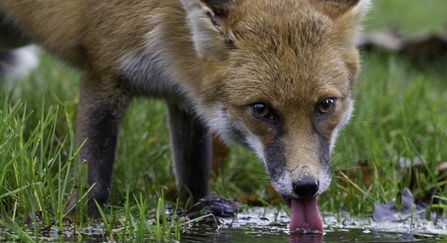The hot weather brings with it problems for wildlife, including drying up water sources and causing animals to overheat. It can also make food scarcer, including plants, which may die, and worms that bury deep into the soil. The public can help protect wildlife in the heat by following these steps:
- Provide enough water – Water sources will help many species to drink, bathe and cool down. For example, birds need water to bathe to keep their feathers in good condition, so top up the bird bath regularly with fresh, clean water. You can also put shallow dishes of water on the ground, with stones in for insects like bees to land on.
- Help out with food- Keep bird feeders topped up and scatter some food, like seeds and apple chunks on the floor for thrushes and other animals. For insects, regularly watered plants are lifelines.
- Provide enough cover from the sun – Provide logs, stone slabs, rockeries, and tall grass, which provide cover for frogs, toads and newts seeking shelter from the sun.
- Top up your pond– Ponds that are low can be topped up. If your rain barrel is empty, use tap water - but add little and often. This will help keep the oxygen levels high and reduce the build-up of algae.
- Stay messy – Wild areas in the garden provide shelter for a wide range of wildlife, so don’t be too tidy.
- Ditch disposables - Don't bring disposable barbeques to nature reserves. They can cause fires in drier and warmer weather and have severe consequences to wildlife and habitats if this happens.

